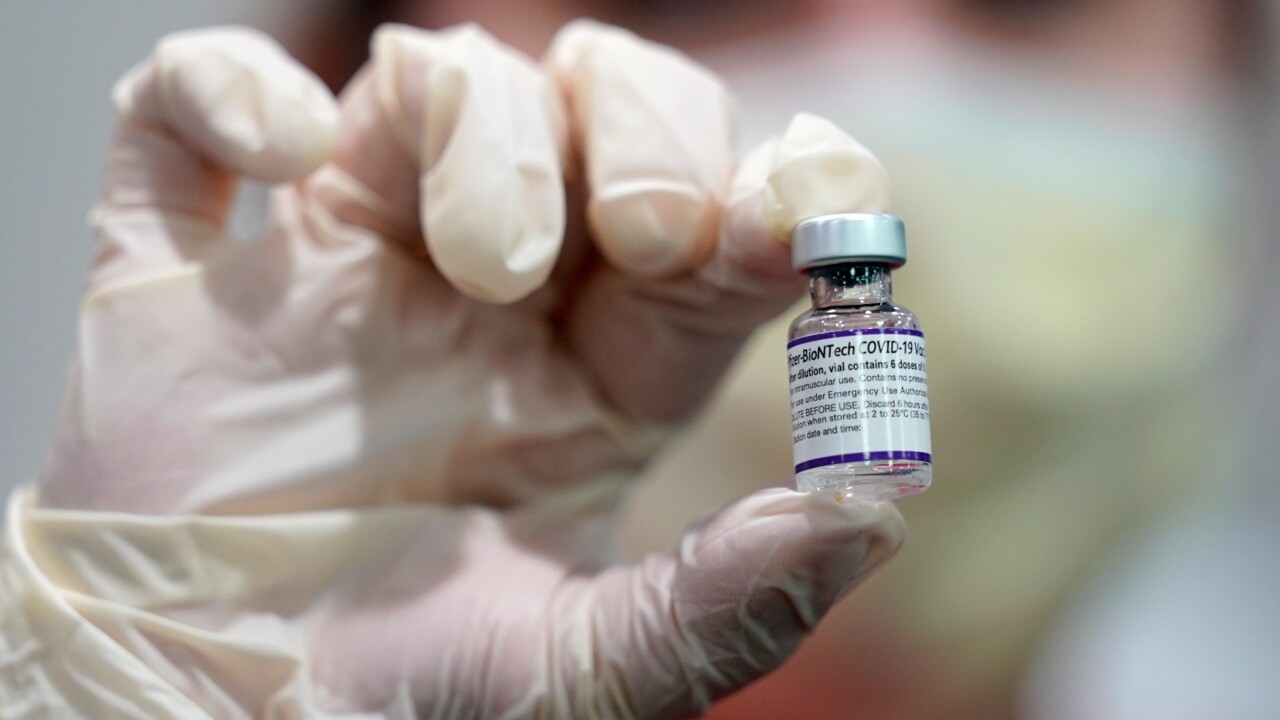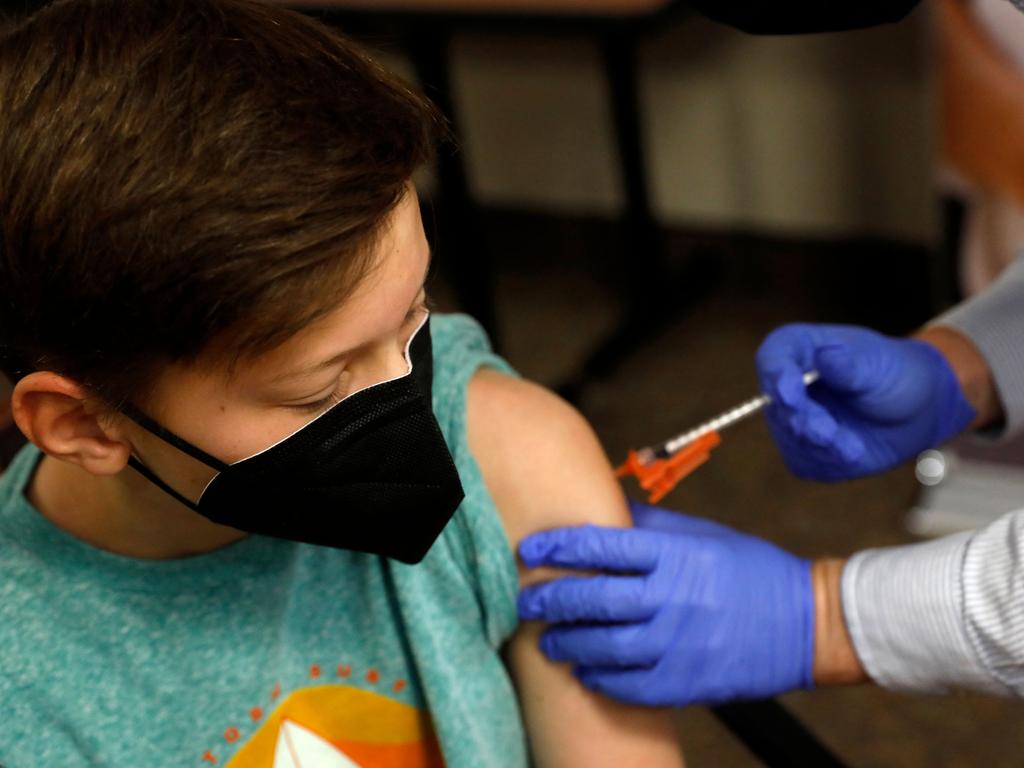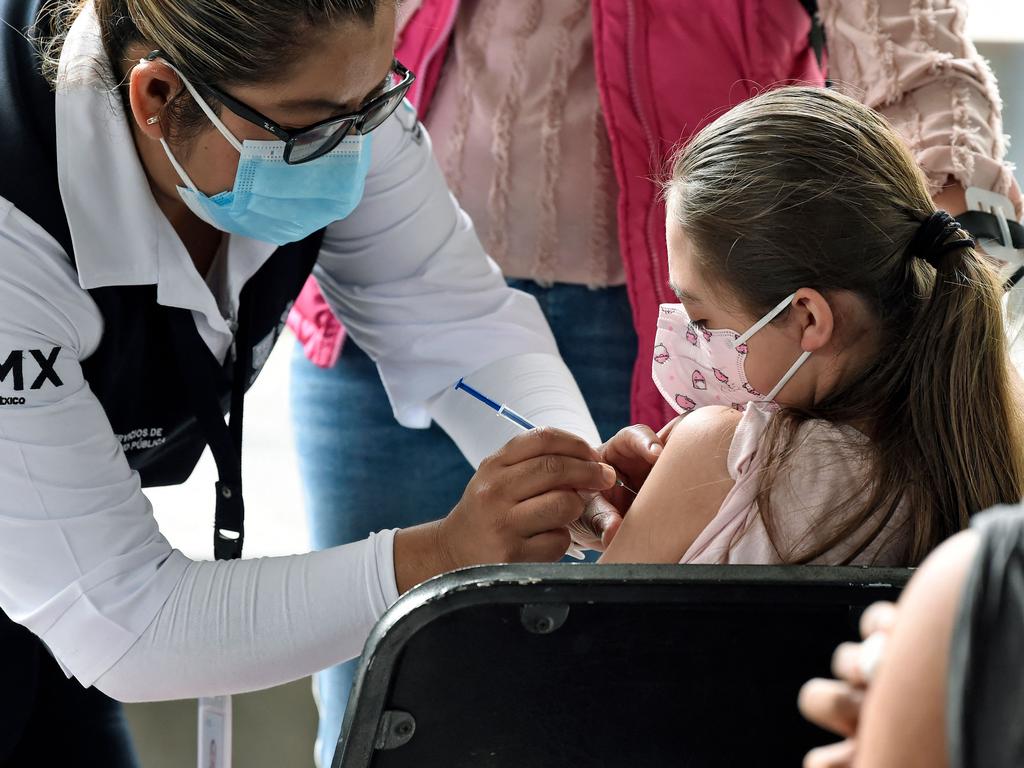FDA panel endorses Pfizer vaccine for children aged five to 11
Millions of young children aged five and up will soon start getting their Covid-19 shots after a crucial vote. Here’s what the experts said.

Children in the US could be offered the coronavirus vaccine as early as next week, after a key advisory committee voted overwhelmingly to endorse the use of Pfizer’s shot for those aged five to 11.
The Food and Drug Administration’s expert panel voted in favour of giving children two doses of Pfizer-BioNTech vaccine at about one-third the adult amount, three weeks apart, after an all-day meeting on Tuesday.
In the Vaccines and Related Biological Products Advisory Committee’s vote, 17 members were in favour, while one abstained.
Recommendations by the panel on whether to approve products are not binding, but are typically followed by the FDA.
If the FDA authorises the vaccine, around 28 million children in the US would become eligible.
After a day of presentations, the committee held a lengthy debate before voting on the question, which asked members whether, “based on the totality of the scientific evidence available”, the benefits of the vaccine “outweigh the risks for use in children”.
The panel heard that thousands of children had been hospitalised with Covid-19, and nearly 100 had died.
A Pfizer official presented safety data from two test groups of children, saying no major safety concerns emerged. Data from one group of about 2200 children showed the vaccine had an efficacy rate of 91 per cent against symptomatic disease.
But concerns were raised over the risk of rare side effects such as myocarditis and pericarditis, or inflammation of the heart and lining around the heart, which have particularly affected teenage boys.
Some experts questioned whether vaccines should be given only to children in high-risk groups.
The issue of natural immunity was also raised by several members, after the Centers for Disease Control and Prevention presented blood test data indicating 42 per cent of young children had antibodies, suggesting they may have previously been infected.
“It’s always nerve-racking when you’re asked to make a decision for millions of children based on studies of only a few thousand children,” said Dr Paul Offit from the Philadelphia Children’s Hospital.
“The question is when do you know enough? We certainly know that there are many children between five and 11 years of age who are susceptible to this disease who could very well be sick and are hospitalised or die from it.”
Stanford University’s Dr Hayley Gans highlighted the indirect effects of the pandemic on younger children such as learning loss, and argued the probability of myocarditis and other cardiac issues was lower in the younger age group.

Dr Ofer Levy, Professor of Paediatrics at Harvard Medical School, said there were “a number of broadbased principles here that are converging, one of which is the concept of including children in biomedical research”.
“In fact there’s something called the Paediatric Research Initiative, or PRI, that was passed on the federal level,” he said.
“And we’re happy to see that studies are being done because this pandemic is affecting them both directly and indirectly, so I very much welcome these data and in many ways they’re promising.”
But Dr Levy said panel members still faced a challenge to address the question of the risk-benefit analysis.
“What will the actual myocarditis rates be in these younger kids who may be less susceptible to myocarditis? Right now that’s a speculation, we don’t know that for sure,” he said.
Dr Eric Rubin from the Harvard T.H. Chan School of Public Health said the decision had been “much tougher” than expected.
“Data shows that this vaccine works and it’s pretty safe, and yet we’re worried about all of these – we’re worried about a side effect that we can’t measure yet, but it’s probably real, and we see a benefit that isn’t the same as in older age groups,” he said.
“So for me, I think it’s going to revolve around two questions. First off, whether there is going to be a use for this vaccine in this age group, and then how the decision gets made to use it. I think what sways me here is that it is a very personal choice. If I had a child who was a transplant recipient I would really want to be able to use a vaccine like this, and there are certainly kids who probably should be vaccinated.”

But Dr Rubin said the question of how broadly the vaccine should be rolled out to children aged five to 11 was a “substantial one”, conceding the FDA was “kind of punting that” to the CDC’s Advisory Committee on Immunisation Practices.
The CDC panel is scheduled to make its own decision next week.
“I do think it’s a relatively close call … but we’re never going to learn about how safe a vaccine is unless we start giving it,” Dr Rubin said.
“That’s just the way it goes. It’s how we found out about rare complications of other vaccines like the rotavirus vaccine, and I do think we should vote to approve it.”
Among the panel members to voice concerns was Dr James Hildreth, head of Meharry Medical College in Nashville, who said he had “several problems” with the decision.
“One of the things that’s really been impactful to me is to learn the prevalence in children might already be 42 per cent, which means 30 million of the 72 million children in our country may have some form of immunity to the virus already,” he said.
“It just seems to me that in some ways we’re vaccinating children to protect the adults, and it should be the other way around. That if 30 million children already have some form of immunity, they’ve made their contribution to herd immunity already, and our focus should be to get the adults vaccinated to protect the children.”

The one panel member who abstained, Dr Michael Kurilla from the National Institutes of Health, said not enough attention was being given to the benefit side of the risk-benefit equation.
Dr Kurilla questioned whether the vaccine offered “any benefits at all” to the more than 40 per cent of children who had prior infection, which he speculated was a low estimate.
“Are they actually very well protected?” he said.
“The other aspect here is for children who have undergone a Delta infection, does now vaccinating them with a strain that goes back almost two years, does that actually help or hurt their current immune system with regard to ongoing variants? I don’t think we know that – we have no idea.”
The New York Times reports that since US regulators approved the Pfizer shot for children aged 12 to 15 in May, 46 per cent of that age group has been fully vaccinated, compared with 69 per cent of adults.
Polling has showed that roughly one-third of US parents with children aged five to 11 would be eager to get their children vaccinated as soon as possible, while another third prefer to wait.
On Tuesday, Therapeutic Goods Administration deputy secretary John Skerritt said the Australian regulator had received part of Pfizer’s application to make its vaccine available for children as young as five.
“We will look at that carefully,” he said.






